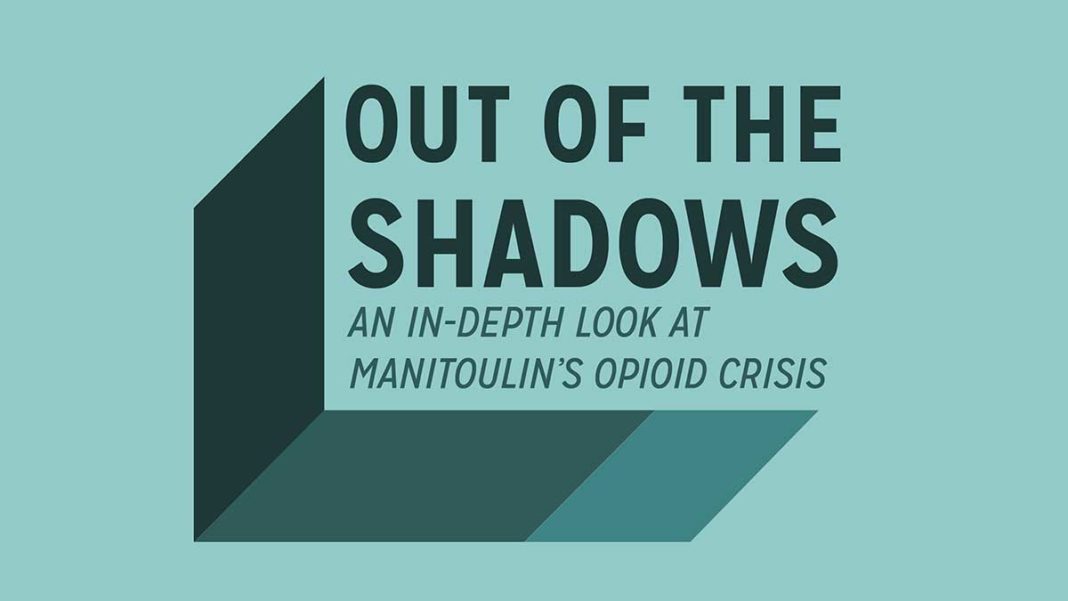MANITOULIN—One would be hard pressed to find someone on this magnificent island we call home that has not been touched, in some way, shape or form, by the opioid crisis. Perhaps a loved one is struggling with substance use disorder, or a friend has undergone treatment for opioid addiction—chances are high that you haven’t been able to completely avoid the crisis. But how much do you really know?
Last June, this newspaper published a special supplement, ‘Out of the Shadows,’ which sought to highlight the opioid crisis as it effects the people of Manitoulin. The Expositor is now hoping to find out more on how that special publication, and the subsequent online edition, helped to change local attitudes about the nationwide epidemic.
“We realized that it was a lot of information to digest, but we felt that it was best to lay it out all there in one big publication, rather than have an ongoing series of articles,” said Expositor publisher Alicia McCutcheon. “We felt it would be more meaningful and impactful that way.”
For months, then-Expositor reporter Warren Schlote conducted research, interviews and compiled statistics that covered the gamut—the origins of the crisis and why drug dealers from southern Ontario find Manitoulin so appealing, to overdose deaths and stories of great sadness, to ones of joy.
“It was an eye-opening experience for Warren, too,” Ms. McCutcheon added.
“I didn’t know a ton about what the opioid crisis was,” Mr. Schlote told The Expositor in a previous interview. That led to the idea that other people might not have that depth of knowledge and might also benefit from a more comprehensive explanation. “I hoped it might get them to a better point of understanding,” he said of the ‘Out of the Shadows’ supplement.
Mr. Schlote said he realized early on that people were quick to paint the crisis locally as a ‘First Nations problem,’ when data clearly showed that it was not.
“Making this fact known became important to the project,” Ms. McCutcheon explained. “The crisis is often more visible in First Nation communities because of the compounding effect it has. Take opioids and add it to the intergenerational trauma that many families face and you have potential, or even lethal mix.”
“First Nation communities must be applauded for the work they’ve done in facing the challenge head on, but heaven help you if you’re struggling with substance use disorder in, for example, the far reaches of Western Manitoulin,” the publisher added. “The supports just aren’t there in many—most, even—Island communities. Hopefully that changes with the new mobile mental health and addictions team, led by Noojmowin Teg—an exciting new tool in Manitoulin’s toolkit.”
It is The Expositor’s hope that ‘Out of the Shadows’ helped to make Islanders more aware of their friends and neighbours and the struggles they may be enduring. To that end, we want to hear from you.
Please fill out the short form below asking how ‘Out of the Shadows’ helped to change your understanding of the opioid crisis and what you hope to learn more of on that topic. This will help inform future coverage in coverage in the paper and online on this critically important topic. The supplement is also available online at manitoulin.com/opioid-crisis.
“We continue to hear from readers, months on, about how much they took from ‘Out of the Shadows,’ and we thank you for that,” Ms. McCutcheon said. “We would love to hear from you in writing, so please take the time to give us a few sentences on this important body of work.”





